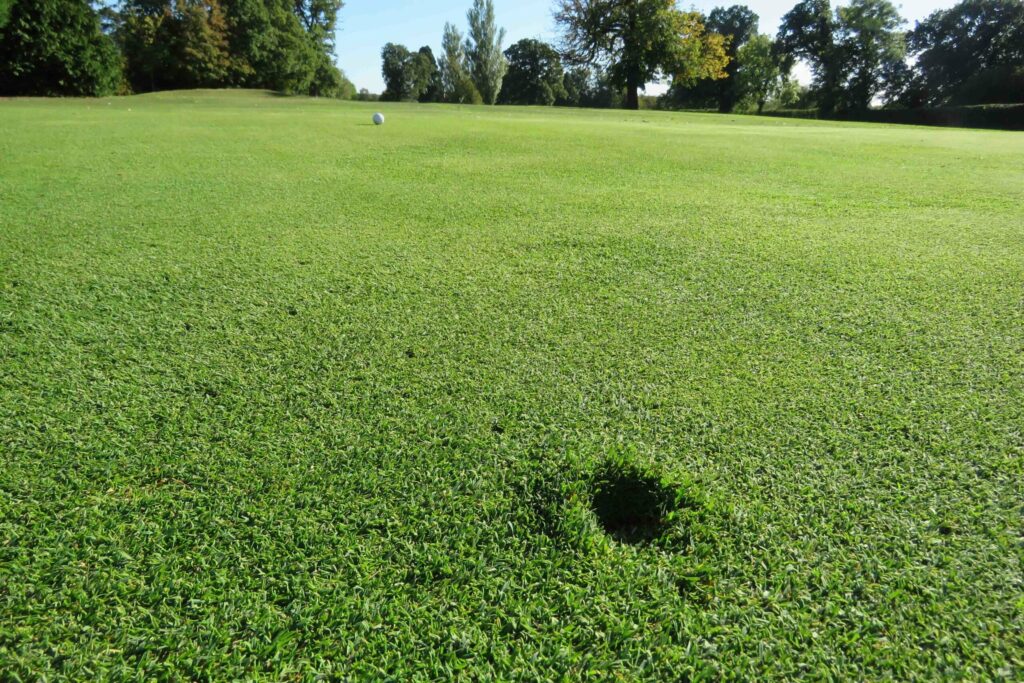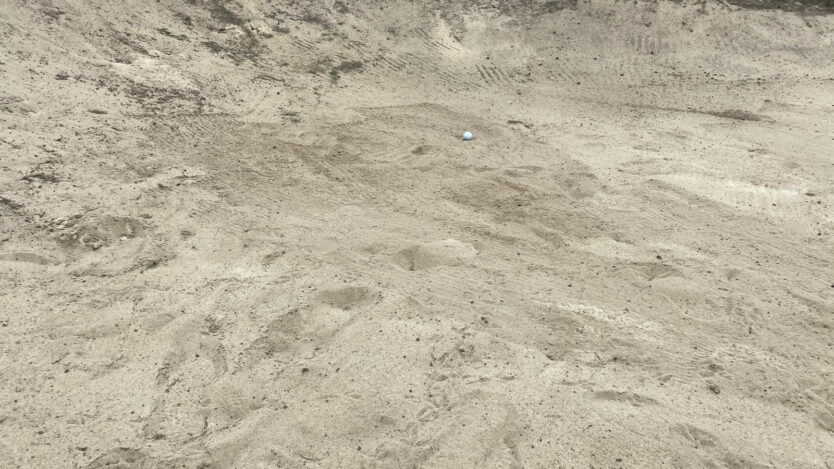Whether it’s not raking bunkers, or failing to repair pitch marks, it feels like our great game needs an etiquette reset
This article is part of GCMA Insights – topical content for golf industry professionals, discussing the things that matter to those who work in golf clubs.
Look at the picture. That’s not a bunker, it’s a crime scene. The distinctive treads of different shoe types dive deep into the sandy surface, as do the scars carved out by half a dozen attempted escapes.
I didn’t want to get in there and play my ball. I wanted to cordon it off, send in forensics and sweep for fingerprints.
Maybe you look at the image and are shocked. Maybe you don’t care. What bothers me more is that it is not an unusual snapshot.
There were examples of this all over the golf club. And this wasn’t a pitch and putt, either. It was a well-heeled club where it costs thousands a year to be a member.
I could have shown you similar portraits of destruction on the greens. A busy tee sheet that day had left many looking like they had been hit by miniature mortars – the pockmarks wounding the otherwise superbly manicured surface.
This is not a new story.
Golfers have been bemoaning standards ever since someone had the bright idea of using a stick to whack a ball around a field.
More than 130 years ago in his seminal work, Badminton Library of Golf, Horace Hutchinson exclaimed that “no golfer is worthy of the name who does not put back his divot”.
He also moaned angrily about players who expected gimmes and others who counted out his score while he was hacking about in a bunker.
Get involved in the debate.
To join the GCMA, click here, or to organise a call with a call with a member of the GCMA team, just complete the form below.
Clubs have putting up signs and, latterly, sharing social media posts begging golfers to clean up after themselves for as long as I’ve been playing the game.
Some went the extra mile. Troon Golf once gave a free beer to those who got their attention by tweeting themselves repairing a pitch mark.
But, if anything, things appear to have got worse since Covid. Being locked up for several months seems to have brought out the more feral aspects of some people’s personalities.
Whether that’s misbehaving during shows or failing to rake a bunker after their size 12s have ploughed a route through it, there is a sense of entitlement now that appears to have worsened after the doors were opened again.
On the golf course, that’s translated into, ‘that’s not my job’, ‘the greenkeepers are paid to do that’, or ‘I just can’t be bothered’.

It the equivalent of chucking the takeaway trash out of the car window. Someone else will sort it.
While some of these things seem small fry – should someone get that upset about their ball appearing in some footmarks? – they add up to an image of a sport that is losing its way on the course.
That’s because etiquette does matter.
It has practical effects. Unraked bunkers divert greenkeepers from other jobs they could be doing. Unrepaired pitch marks damage the green and take weeks to heal.
A slower group that won’t let faster players pass causes short tempers and a traffic jam on the golf course.
WHY JOIN THE GCMA?
Membership of the GCMA unlocks a network of like-minded professionals, provides you with support in your professional and personal development, and provides you with a multitude of benefits. Whether that’s the tools that will help you to excel in your profession, or a wide range of services to support your wellbeing, signing up to the GCMA is joining a community.
I’m not going to fall into the trap of arguing that it’s what sets golf apart from other sports. Plenty of others, just take martial arts as an example, are built on codes of respect.
But it is an important part of golf’s overall appeal – a rite of passage that teaches life skills and moulds people into citizens who show courtesy and respect for each other.
Contrary to what you might think, what you wear is an irrelevant distraction in that debate. It’s always been what you do that counts.
So if we’re agreed that we’ve got an issue, what can we do about it? It’s time we all take responsibility.
That means leading from the front, going above and beyond in making sure our golf courses are as presentable as they can be. If that’s spending a few extra seconds tidying up someone else’s mess in a bunker, then so be it.
But it’s also about calling out those who don’t look after the course. It’s about making it socially unacceptable within the club environment to fail to uphold these basic tenets.
You wouldn’t play with someone who drops a ball from their trouser pocket. Why team up with someone who refuses to repair a pitch mark?
That kind of action can only be effective if we’re a collective. Committees can appeal and plead as much as they like – and they need to take a lead – but golfers have to be the ones to make it happen.
Because it’s only if we’re all in it together that we can reverse these slipping standards and perform a great etiquette reset.
This article is part of GCMA Insights – topical content for golf industry professionals, discussing the things that matter to those who work in golf clubs.
Get involved in the debate. To join the GCMA, click here, or to organise a call with a member of the GCMA team, just complete this form and we’ll be in touch!
Enquiries
"*" indicates required fields


